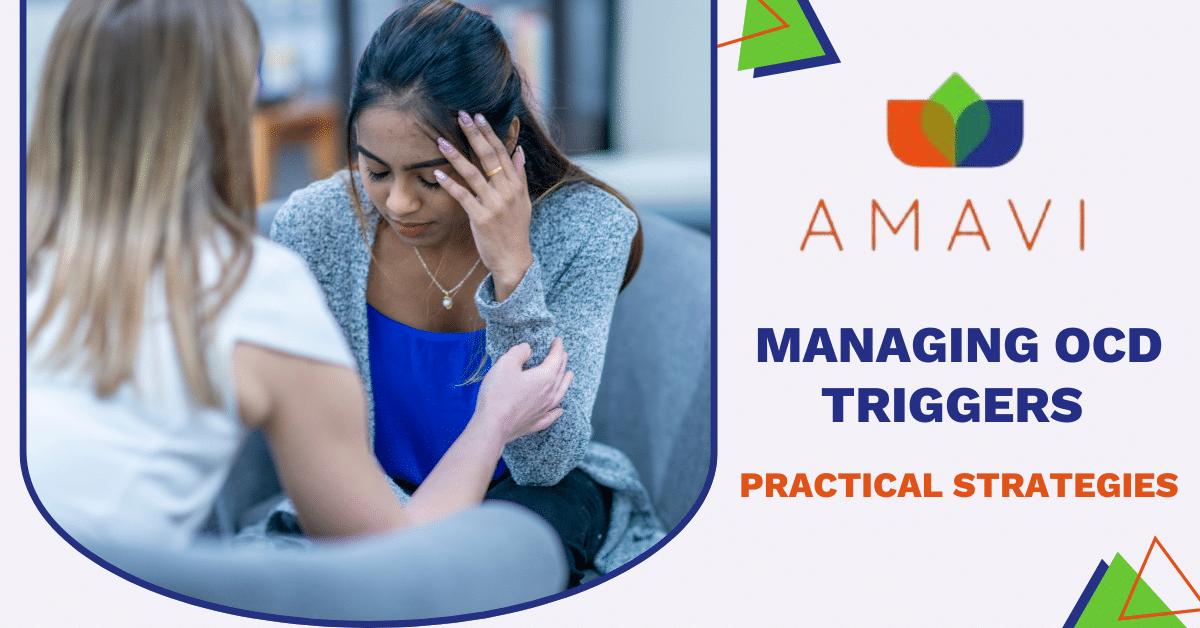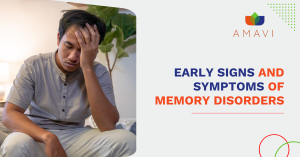Obsessive-Compulsive Disorder (OCD) is a mental health condition characterized by intrusive thoughts (obsessions) and repetitive behaviors (compulsions) aimed at alleviating the distress caused by these thoughts. One of the most effective ways to manage OCD is by addressing the triggers that provoke obsessions and compulsions. Progress in this area is often supported by dispelling widespread myths that can hinder understanding and effective treatment. This blog explores how to identify OCD triggers, utilize mindfulness and exposure therapy, and leverage self-awareness to develop robust coping mechanisms.

1. Identifying Emotional, Environmental, and Social Triggers
Understanding what sparks your obsessions and compulsions is the first step in managing OCD effectively. Triggers can vary widely among individuals, but they generally fall into three categories: emotional, environmental, and social.
Emotional triggers often play a significant role in exacerbating OCD symptoms. Feelings such as anxiety, guilt, or fear can act as catalysts for obsessions and compulsions. For instance, someone with anxiety about cleanliness may engage in compulsive handwashing to reduce their distress. Similarly, guilt over intrusive thoughts might lead to mental rituals, such as repetitive prayers, in an attempt to neutralize these thoughts. Recognizing the emotional connections to your obsessions can help you address the underlying issues rather than solely reacting to the compulsions.
Environmental factors can also significantly influence OCD symptoms. For example, public spaces like restrooms or public transportation may trigger contamination fears, while a cluttered room can amplify the need for orderliness. Being aware of these environmental triggers allows you to anticipate challenges and prepare coping strategies to navigate them effectively.
Social triggers are particularly complex, as they often involve interactions with others that are beyond your control. Fear of being judged or criticized for your compulsions can heighten anxiety, while social pressure to participate in certain activities, such as group events or public speaking, may intensify symptoms. Understanding and addressing these social dynamics is crucial for managing OCD in interpersonal contexts.
2. Techniques Like Mindfulness and Exposure Therapy
Once you’ve identified your triggers, applying evidence-based techniques like mindfulness and exposure therapy can significantly reduce their impact and help you regain control.
Mindfulness is a therapeutic practice that encourages individuals to focus on the present moment without judgment. For those with OCD, mindfulness can help in observing intrusive thoughts and feelings without reacting to them. By practicing mindfulness meditation for 5–10 minutes daily, you can train your mind to stay grounded and reduce the intensity of obsessive thoughts. Additionally, mindful observation during triggering situations allows you to view your thoughts as temporary and manageable rather than overwhelming or unbearable. Accepting the presence of intrusive thoughts instead of fighting them can shift your energy toward more constructive activities.
Exposure and Response Prevention (ERP), a specialized form of Cognitive Behavioral Therapy (CBT), is a highly effective method for managing OCD symptoms. ERP involves gradually exposing yourself to triggers while refraining from performing compulsions, helping your brain learn that the feared outcomes do not materialize. For instance, if contamination fears are a trigger, ERP might involve touching a doorknob perceived as “dirty” and resisting the urge to wash your hands immediately afterward. The process begins with identifying triggers and creating a hierarchy by ranking them from least to most distressing. Exposure starts with low-distress triggers and gradually progresses to more challenging ones, with repetition reducing anxiety over time.
Combining mindfulness with ERP can amplify the effectiveness of both techniques. While mindfulness helps you tolerate the discomfort during exposure sessions, ERP teaches you to reduce reliance on compulsive behaviors. Together, these approaches create a robust strategy for managing OCD triggers.
3. Using Self-Awareness to Build Better Coping Mechanisms
Self-awareness is a critical skill for managing OCD, as it helps you recognize patterns in your thoughts, emotions, and behaviors. Developing this skill empowers you to respond proactively rather than reactively to triggers.
Journaling is a simple yet powerful tool for increasing self-awareness. By documenting your experiences, you can identify patterns in your triggers, reactions, emotions, and outcomes. For example, you might record situations or thoughts that preceded an OCD episode, note how you responded (whether with compulsions or alternative strategies), and evaluate the emotional impact. Over time, these entries can reveal valuable insights into your condition and highlight areas for improvement.
Recognizing early warning signs of OCD flare-ups is another key aspect of self-awareness. These signs may include an increase in intrusive thoughts, heightened anxiety, or irritability in specific situations. Avoidance behaviors or a noticeable rise in rituals can also signal the need for intervention. Catching these signs early allows you to implement strategies like mindfulness, ERP, or professional guidance before symptoms escalate.
Developing alternative coping mechanisms provides constructive outlets for managing triggers. Physical activities, such as yoga, swimming, or walking, can alleviate anxiety and provide mental clarity. Creative outlets like painting, writing, or playing music offer a productive way to distract your mind and channel your energy. Sharing your experiences with trusted friends, family members, or support groups can also reduce feelings of isolation and provide practical insights from others who understand your challenges.
Empowering Yourself to Manage OCD Triggers
Managing OCD triggers requires a combination of understanding, strategic interventions, and self-awareness. By identifying emotional, environmental, and social triggers, utilizing mindfulness and ERP techniques, and building better coping mechanisms, you can regain control over your life and reduce the impact of OCD symptoms.
Managing OCD is a journey, not a destination. Progress may be gradual, but with persistence, self-compassion, and support from loved ones and professionals, you can navigate OCD’s challenges more effectively. Each small step forward is a victory worth celebrating, bringing you closer to a life of balance, resilience, and fulfillment. If you’re struggling with severe symptoms, consider reaching out to a mental health professional at Amavi Integrative Mental Wellness to develop a personalized treatment plan tailored to your needs. Your path to recovery begins with understanding, and every small step forward brings you closer to success.






